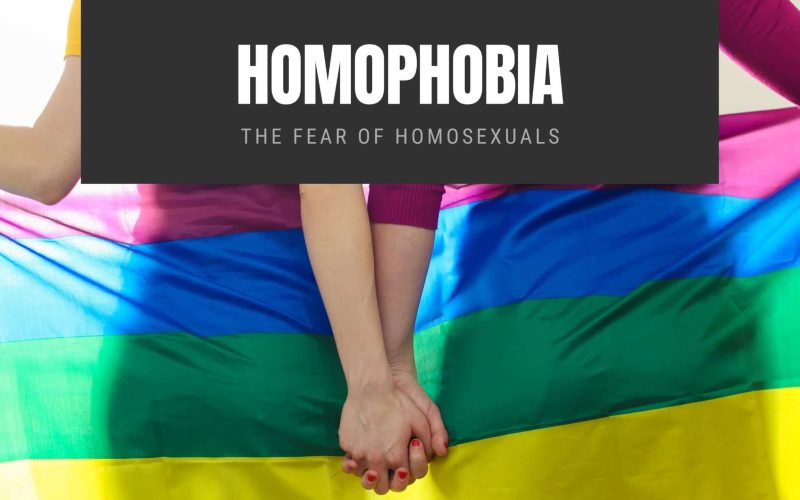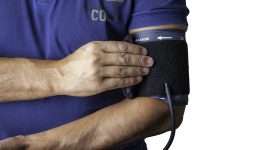Phobias are very common, and most of them have so much in common. However, there is one phobia that may not be similar in any way to all other kinds of phobia, and that is Homophobia.
What is Homophobia?
Homophobia is not an intense fear or a disease. Rather, it is a form of discrimination or prejudice.
Homophobia is the dislike and sometimes fear or hatred of individuals who appear to be or who are queer, lesbian, gay, bisexual, or questioning (LGBTQ).
There are many possible causes of homophobia, and some of them include misinformation, ignorance, or a lack of understanding about what members of the LGBTQ community are really like.
Naturally, people have been wired only to accept two genders: male and female. Also, religion and society expect that people are only attracted to people of the opposite sex if they are interested in a sexual relationship.
For the above reasons, being nonconforming to society’s or religious sexual norms can be very challenging and problematic in our culture.
Most individuals who are homophobic are not exactly afraid of gay people but see them as odd and rebellious or sinners; thus, they project their disapproval through hurtful words and actions against LGBT people.
While it is important to accept people and ourselves just the way they are, it is also important to know that not everyone will love or believe the same things.
The word homophobia was formed in the 1960s by a psychologist known as George Weinberg. As you can already guess, it is derived from two words, ‘Homo’ (which is derived from the word homosexual) and phobia, which means fear.
The term “homophobia” is regularly paired with the word “transphobia” in discussions or documents that explain human rights violations of members of the LGBT community by the United Nations and Council of Europe.
Causes of Homophobia
- Culture: many cultures approve of only marital union or sexual intimacy between a man and a woman.
- Society: Society has never genuinely accepted same-sex relationships.
- Religion: Many religions preach about eternal damnation for people who engage in same-sex relationships and even give examples of some who were punished in the past.
- Family: growing up in a family or having people who are homophobic around you may cause you also to feel the same way.
How Common is Homophobia?
Homophobia is a widespread form of discrimination, and its popularity cuts across Every Continent of the world.
As earlier stated, humans of every race are naturally wired to believe that only man and woman exist, and a man should not be attracted to another man, neither should a woman be attracted to another woman.
It is also not culturally unacceptable for a woman to identify as a man and for a man to identify as a woman.
With more people beginning to question their sexuality and gender, realizing that they cannot change their feelings towards other members of their gender, and learning to speak up about their feelings, the world is finding it difficult to adjust to the sudden changes.
Homosexuality did not just begin in the 21st Century. In many cultures, it has existed for several decades or centuries but was done behind closed doors and in silence.
People who engaged in homosexual activities were made to believe that it was a shameful act and thus would attract some form of punishment if made public.
This mentality is what is majorly responsible for hate crimes against people who identify as gay or members of the LGBT community all over the world.
What Are the Symptoms of Homophobia?
People often wonder if there are symptoms of homophobia. The simple answer is that there are no symptoms of homophobia because it is neither an actual phobia nor is it a disease.
As earlier mentioned, homophobia is more of projected hate or discrimination against people who identify as gay or other LGBTQ people.
Common phobias have physical and psychological symptoms such as sweating, anxiety, headaches, and other discomforts when in the presence of your source of fear or even at the thought of it.
However, all of this is not the case with homophobia.
Signs of Homophobia
- Avoidance of gay and other LGBT people
- Discrimination against gay and LGBT people
- Disassociation from family members and friends who identify as gay or LGBTQ
- Deliberate physical attacks on gay and LGBT people
- Use of derogatory words about gay and LGBT people
- Unequal work opportunities or treating gay or LGBT people differently in the workplace
- Attempting to heal or cure a gay or LGBT person
- Not allowing gay or LGBT people to be themselves around you out of shame
- Projecting personal insecurities on gay and LGBT people
- The urge to hurt gay or LGBT people
- A sense of irritation at the thought or sight of gay people, movies, pictures, or even the mention of the same people in a conversation.
Possible Cure for Homophobia
Because homophobia is not a disease, there is no medical or scientific cure for homophobia.
It is basically the way one person feels about other people or groups of people, and it is mostly a choice to be homophobic.
In the same way, homophobia is a choice; loving and respecting people despite their sexual or gender orientation is also a choice.
Thus, the only cure for homophobia is keeping an open mind and deciding to understand gay people, love them, and accept them.
Events to Stop Homophobia
There are several new and existing events to put an end to homophobia, such as the “gay pride parades” and the “International Day Against Homophobia,” which takes place every May 17.
The first time it was celebrated was on the 17th of May 2005 in over 40 countries. Countries like Brazil, Argentina, Mexico, and Colombia have created mass media campaigns against hate crimes against homosexuals since 2002.
In some parts of the world, it is now illegal to mistreat gay people, and it is also a hate crime to attack or hurt them for that reason.
Will Homophobia Ever End?
Sadly, there may never be an end to homophobia. For as long as people have the right to believe what they want and practice their beliefs, there will always be those who are staunchly anti-gay, those with double standards, those who are just ashamed, and those who are bold enough to identify as gay or support the LGBT community.








